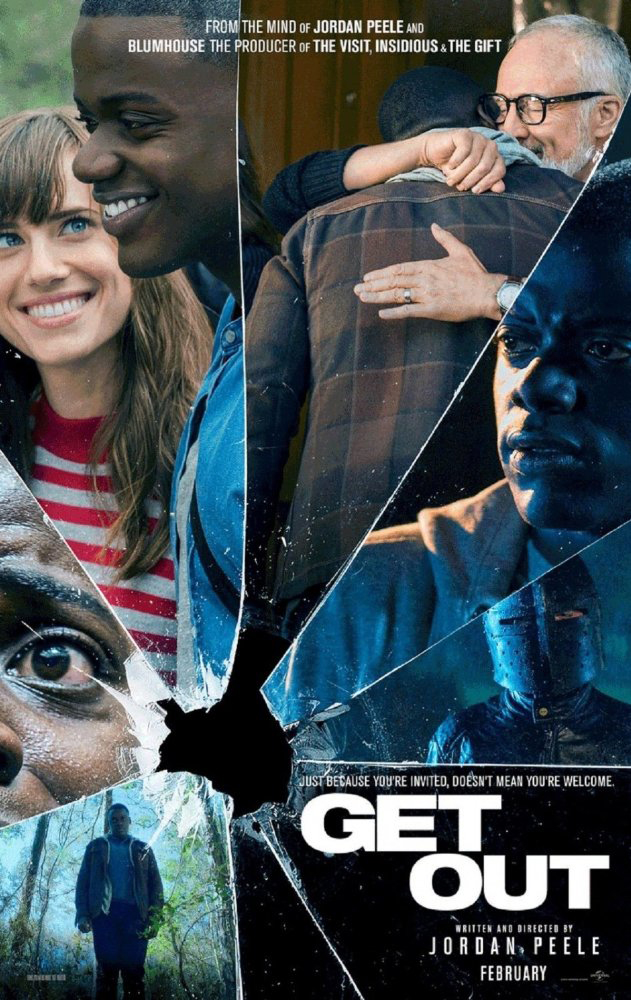Get Out: the poignant hit film shines a frightening light on racial bias

Watching the trailers for the now critically acclaimed film Get Out had me inexplicably hopeful.
I had no clue what this film would deliver, but as an unabashed lover of horror movies with a twist, I was thoroughly impressed with both the execution of the movie genre itself, and the all-too-relevant meaning threaded throughout.
This expertly crafted and almost unexplainable directorial debut from Jordan Peele, proves that he was not only able to create something unfathomably original, but he also poignantly provided a social critique that confronts all senses.
Delving into a review of Get Out is a delicate balance between how much should be given away (as little as possible) and where my place lies in discussing the heavy meaning behind more than just the base-level horror that this movie provides at a cursory glance.
As a white woman going to see this movie with my white boyfriend, I entered the theatre (which was predominantly filled with a white audience) recognizing the unavoidable privilege we had as viewers of a film unapologetically addressing the topic of race and the injustices surrounding it. By the time the movie began, every single seat around us was filled.
Not knowing what to expect, I sat with the knowledge that I was about to gain more than I originally thought from what I was about to watch.
It was easy to ascertain that a great portion of the theatre was uncomfortable, and rightfully so, from the get-go.
https://www.youtube.com/watch?v=A2JbO9lnVLE
The seemingly nondescript instances of everyday racism that most have witnessed ourselves were confronted seamlessly, transforming us into flies on the wall that were surveying acts that were inherently wrong and that we could do nothing about.
What Get Out establishes from the beginning is an unfortunate rarity in the world we live in, especially in a film that’s aimed to scare its audience.
The all-too-commonly placed “danger” isn’t Chris (Daniel Kaluuya), the leading black man, it’s the despicable white people who surround him.
The black characters aren’t victims to the all-too-common trope of being written off early on by easily preventable deaths, either.
Chris is intuitive, strong and resilient. He is the foil to his best friend Rod (Lil Rel Howery).
Rod is easy to love and exemplifies one significant aspect which many white people find disconcerting: he is unashamedly black.
His embodiment of his own race and the behaviour that accompanies it could have people stereotypically assuming that he’s less than what he is.
In reality, he’s the most intelligent character out of the whole damn bunch from the moment he appears onscreen.
Get Out did not befall to a predictable message or turnout that leaves its audience shrugging their shoulders or nodding knowingly to themselves as though they’re mentally penning a review for Rotten Tomatoes about the painfully calculable ending.
By the film’s end, people were jumping out of their seats, screaming out loud and cheering uproariously — something I had never seen people do so collectively when seeing a movie in a theatre.
Get Out is so much more than just another horror film.
It’s an incredibly acted, entirely unique, shocking, beautiful masterpiece that sheds a very harsh light on prevalent societal issues that many would rather turn away from.
Seeing this film made me think beyond the plot and focus on the more subtle nuances that it showcased. It had me questioning what we see and tolerate on a daily basis and how the movie wasn’t as outlandish as it originally seemed.
Jordan Peele’s work is something to not only admire and be scared of, it’s something to think about.


